Skill Discipline

What role does discipline in sports play in achieving personal goals and mental resilience ?
The text discusses the importance of discipline in sports for achieving personal goals and building mental resilience. It outlines key aspects such as setting clear objectives, consistent practice, overcoming obstacles, self-regulation, focus and concentration, and resilience under pressure. The article emphasizes that discipline not only enhances physical performance but also strengthens mental fortitude, enabling athletes to reach their full potential and thrive in their respective sports.
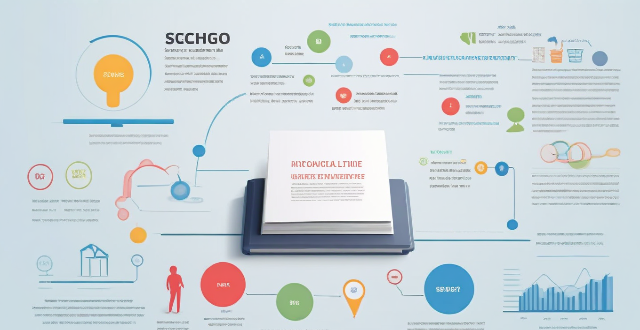
What role does self-discipline play in following a study plan ?
Self-discipline is crucial in following a study plan effectively. It involves setting goals, prioritizing tasks, maintaining focus on objectives, and avoiding distractions. By breaking down long-term goals into smaller, manageable tasks and allocating time wisely, self-disciplined individuals can maximize productivity and achieve academic success efficiently. Consistency, overcoming procrastination, and staying motivated are also key factors in sticking to a study plan. Developing strong self-discipline skills can help students reach their full potential.

In what ways do sports promote self-discipline and self-control ?
Sports play a crucial role in promoting self-discipline and self-control by teaching goal setting, time management, perseverance, impulse control, delayed gratification, and stress management. These skills are essential for success in all areas of life, including personal and professional relationships, academics, and careers. By participating in sports, individuals develop valuable character traits that can lead to long-term success and well-being.
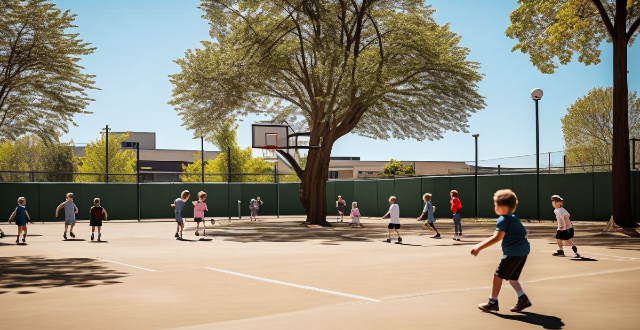
Are there specific sports that improve academic performance in children ?
The article discusses the potential benefits of different types of sports on academic performance in children. It highlights team sports like basketball, soccer, and volleyball for their ability to teach social skills, time management, and discipline. Individual sports such as swimming, tennis, and gymnastics are noted for promoting self-discipline, goal setting, and mental toughness. Outdoor sports like hiking, cycling, and rock climbing are mentioned for providing physical activity, stress relief, and exploration opportunities. The conclusion emphasizes the importance of considering individual differences among children when encouraging sports participation for academic improvement.

Can nutrition affect an athlete's skill level ?
Nutrition is vital for athletes' overall well-being and performance, including skill enhancement, recovery, and injury prevention. It affects cognitive function, physical performance, and recovery, ultimately influencing an athlete's skill level. A balanced diet with proper nutrients can help athletes reach their full potential and succeed in their sports.
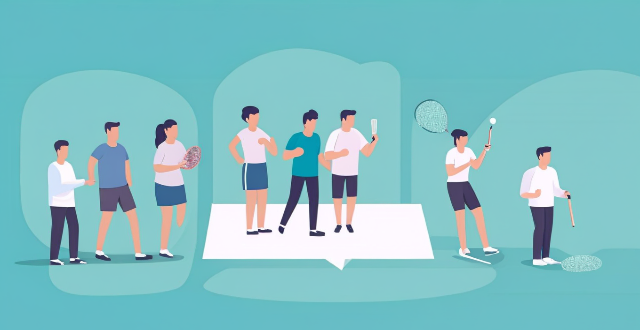
What is the role of sports in character building during adolescence ?
The article discusses the significant role sports play in character building during adolescence. Sports contribute to physical health and self-discipline, teamwork and social skills, goal setting and perseverance, responsibility and time management, emotional intelligence and stress management abilities. Engaging in sports not only benefits young individuals physically but also shapes their personality and values, preparing them for success in all aspects of life.

Can participation in sports enhance one's ability to express themselves artistically ?
Participating in sports can enhance one's artistic expression by improving physical abilities, increasing creativity, developing discipline and perseverance, and building emotional intelligence. These skills can be applied to various forms of art such as dance, theater, music, and visual arts. While it may not be necessary to participate in sports to become an artist, doing so can provide valuable experiences that can benefit anyone looking to express themselves creatively.

Can playing multiple sports help in skill development ?
Participation in multiple sports can enhance overall athleticism and skill development by improving physical attributes, reducing injury risk, developing transferable skills, and promoting mental toughness. It also offers social benefits such as expanded networks and increased opportunities for exposure. While specialization has its advantages, playing multiple sports can help athletes become well-rounded competitors.
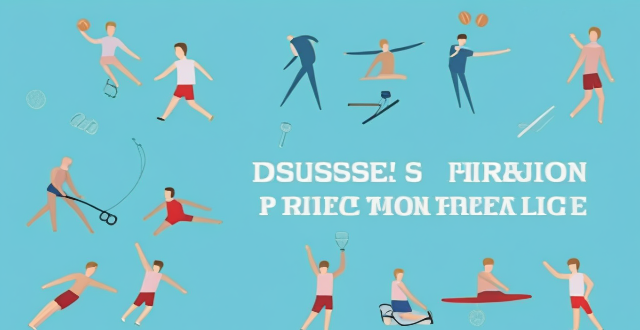
How does sportsmanship contribute to peace promotion ?
The text discusses the role of sportsmanship in promoting peace by fostering respect and tolerance, building teamwork and cooperation, teaching discipline and self-control, serving as a platform for dialogue, and encouraging leadership and responsibility.

How important is rest and recovery in skill enhancement ?
The text discusses the importance of rest and recovery in the process of skill enhancement. It highlights the cognitive and physical benefits of taking breaks, such as improved mental clarity, memory consolidation, muscle recovery, and injury prevention. The practical implications include avoiding burnout, enhancing performance, and strategies for incorporating rest into practice schedules. Overall, the text emphasizes that rest is a crucial component of long-term skill development and should be given equal consideration alongside deliberate practice and training regimens.

How can team sports help in individual skill development ?
Team sports contribute significantly to individual skill development by improving communication skills, enhancing leadership abilities, increasing self-confidence, bettering time management, improving social skills, promoting physical fitness and coordination, providing opportunities to learn from mistakes, and fostering adaptability.

How do I choose a tennis training camp that fits my skill level ?
Choosing a tennis training camp that fits your skill level can significantly improve your game. Here are some tips on how to select the right camp: 1. Assess your current skill level by considering your experience, strengths and weaknesses, and fitness level. 2. Research different camps that offer programs specifically designed for your skill level using online directories, social media groups, and reviews from previous attendees. 3. Check the coaches' qualifications and experience, including their credentials, coaching philosophy, and track record of working with players at your skill level. 4. Consider the quality of the camp's facilities and amenities, such as well-maintained courts, access to equipment, and onsite amenities like locker rooms and dining areas. 5. Evaluate the camp's reputation and success rate by reading reviews, asking for referrals, and contacting the camp directly to learn more about their success stories.

Is speed reading a natural ability or a skill that can be learned ?
Speed reading is a topic of interest for many individuals who wish to improve their reading efficiency and comprehension. The question arises whether speed reading is a natural ability that some people possess, or if it is a skill that can be learned and developed through practice and training. While there may be some individuals who possess a natural ability for speed reading, it is generally accepted that speed reading is a skill that can be learned and improved upon through practice and training. By employing specific techniques and strategies, anyone can enhance their reading speed and comprehension, ultimately increasing their productivity and knowledge acquisition.

How do you handle discipline in a homeschooling environment ?
Handling discipline in a homeschooling environment is crucial for ensuring an efficient and effective learning process. Here are some tips: 1. Set clear expectations at the beginning of each school year, outlining rules and consequences for breaking them. 2. Consistency is key when enforcing rules and consequences to help your child understand that their actions have consequences. 3. Use positive reinforcement to encourage good behavior and academic success, such as praise or small rewards for achieving specific goals. 4. Be a role model by leading with patience, understanding, and respect when addressing your child's misbehavior. 5. Encourage open communication with your child about the rules and consequences in place, being open to feedback and suggestions from them.

How does team sports contribute to personal growth and development ?
Team sports contribute significantly to personal growth and development by helping individuals develop various skills, qualities, and values essential for success in all aspects of life. These include communication skills, leadership abilities, teamwork and collaboration, discipline and responsibility, goal setting and achievement, emotional intelligence, and time management. Participating in team sports can help individuals become well-rounded individuals who are prepared for whatever challenges lie ahead.

How can sports help individuals develop leadership skills and personal growth ?
Participating in sports can help individuals develop leadership skills and foster personal growth by enhancing goal-setting, teamwork, resilience, decision-making under pressure, accountability, confidence building, discipline, physical health, emotional intelligence, and social interaction.

How do sports help in building character and personal growth ?
The text discusses the various ways in which sports can contribute to building character and promoting personal development. It highlights how sports can help develop discipline, promote teamwork, cultivate perseverance, encourage leadership, enhance self-esteem, teach adherence to rules, facilitate social interaction, improve physical health, and teach individuals how to handle pressure. The author emphasizes that the lessons learned through sports participation can translate into valuable life skills that are essential for success both in sports and beyond. Overall, the text suggests that sports offer an array of benefits that stretch far beyond physical fitness and play a significant role in shaping character and fostering personal growth.

Can sports be a tool for personal growth and self-discovery ?
Sports offer numerous opportunities for personal growth and self-discovery, including building resilience and determination, developing teamwork and communication skills, enhancing self-discipline, promoting emotional health, discovering passion and purpose, and cultivating mindfulness and focus.
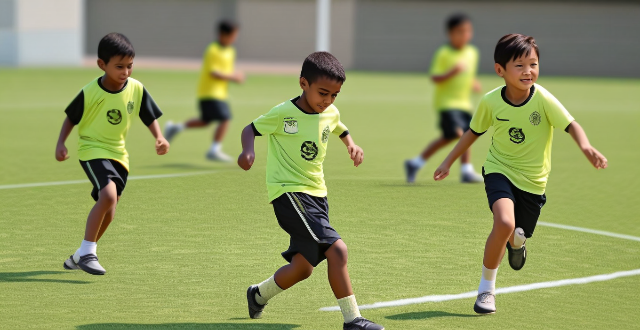
What are the benefits of team sports for child development ?
Team sports provide numerous benefits for child development, including improved physical fitness, coordination and motor skills, healthy lifestyle habits, social skills, self-esteem and confidence, discipline and responsibility, goal setting and achievement, stress relief, resilience, and empathy and compassion.
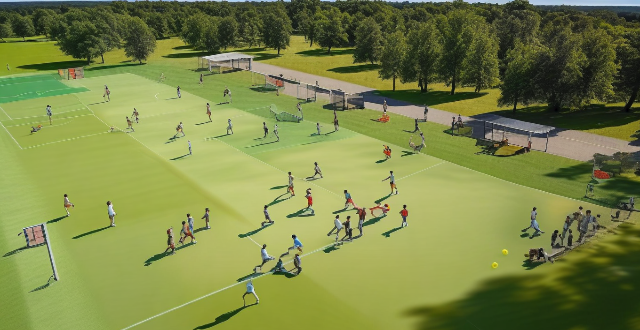
What is the influence of sports on leadership skills development among adolescents ?
This article discusses the influence of sports on leadership skills development among adolescents. It highlights the importance of leadership skills and how sports can contribute to their development through communication, problem-solving, decision-making, teamwork, and self-motivation. The article concludes that sports have a significant impact on the development of essential leadership qualities that are important for success in various aspects of life.

In what ways do sports enhance self-esteem and confidence ?
Participating in sports can significantly boost an individual's self-esteem and confidence. Here are some ways how: 1. Achieving Goals 2. Overcoming Challenges 3. Social Interaction 4. Physical Health 5. Learning New Skills 6. Receiving Feedback 7. Leadership Opportunities 8. Competition Experience 9. Wearing Uniforms 10. Public Performance

In what ways can sports education foster a lifelong love of physical activity ?
The text discusses the role of sports education in promoting a lifelong passion for physical activity among children. It underscores the importance of making sports fun and enjoyable, offering choices, creating a supportive environment, improving fitness levels, building motor skills, developing sportsmanship, teaching teamwork, perseverance, discipline, and time management. The author emphasizes that sports education is essential for children's overall development and encourages prioritizing it in schools and communities to foster healthier, happier lives filled with lifelong love for physical activity.

What role should interscholastic competition play in the educational experience ?
Interscholastic competition, including school sports and academic contests, is crucial for students' physical fitness, intellectual growth, and life skills development. It promotes health, skill development, academic achievement, critical thinking, teamwork, leadership, and resilience. Participating in these activities helps students develop transferable skills that are beneficial in various professions and life situations. Schools should continue supporting interscholastic competition as an essential part of the educational experience.

Can playing sports improve one's self-confidence and personal growth ?
Playing sports can contribute to self-confidence and personal growth by developing skills, overcoming challenges, fostering teamwork and support, promoting discipline and responsibility, encouraging goal setting and achievement, and enhancing social interaction and empathy. Incorporating sports into one's lifestyle can be highly beneficial for overall well-being and personal development.

Can sports be used as a tool for personal growth and self-improvement ?
The text discusses the various ways in which sports can be used as a tool for personal growth and self-improvement. The author highlights the following aspects: - Mental toughness and resilience: Facing challenges and overcoming failure through sports can cultivate mental toughness and build resilience. - Teamwork and communication: Working together and effective communication are essential skills developed through team sports, which can enhance interpersonal relationships and group dynamics. - Discipline and time management: The structured approach required in sports can improve personal organization and time management skills, along with goal setting and strategic thinking. - Physical health and well-being: Sports contribute significantly to physical health by promoting fitness and endurance, and can also improve mental health by combating depression and anxiety. - Leadership and initiative: Sports provide opportunities for individuals to step up as leaders and develop problem-solving abilities, encouraging proactive behavior. - Self-confidence and self-esteem: Achieving mastery in sports can boost an athlete's confidence and self-esteem, fostering a positive self-image. - Adaptability and learning agility: Sports require athletes to adapt quickly to new tactics or game plans, encouraging a mindset of continuous learning that extends beyond the sporting realm. Overall, the text emphasizes that sports offer a comprehensive toolkit for personal development, encompassing benefits that extend far beyond the playing field. Engaging in sports can be a powerful catalyst for self-improvement and personal growth.
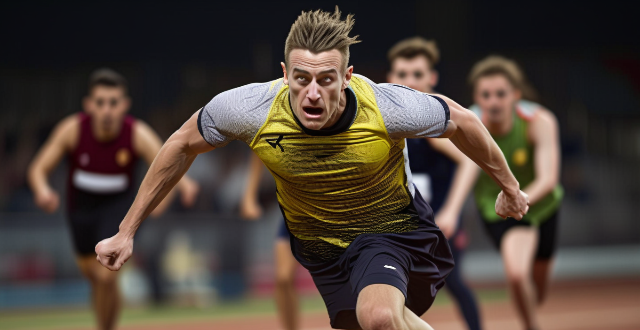
What are the benefits of joining a sports team as an extracurricular activity ?
Joining a sports team as an extracurricular activity can provide numerous benefits for students, including improved physical fitness and health, socialization and teamwork skills, time management and discipline, leadership and responsibility, mental health and stress relief, and the development of lifelong skills and habits. Overall, participating in sports can have a positive impact on various aspects of student life.
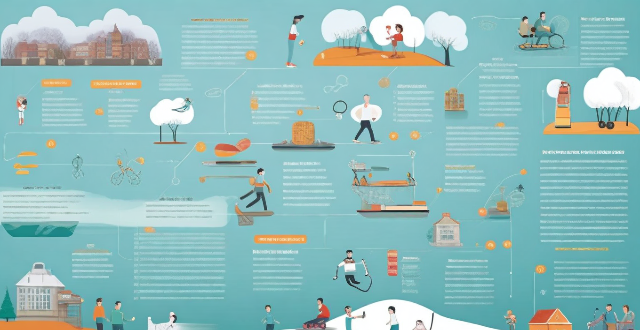
Is there a correlation between sports participation and academic performance ?
The article explores the correlation between sports participation and academic performance. It highlights the potential benefits, such as improved time management skills, increased motivation and discipline, and enhanced social skills, but also acknowledges the potential drawbacks, including time constraints, fatigue, pressure, and stress. The conclusion emphasizes the importance of finding a balance between sports commitments and academic responsibilities for optimal performance in both areas.
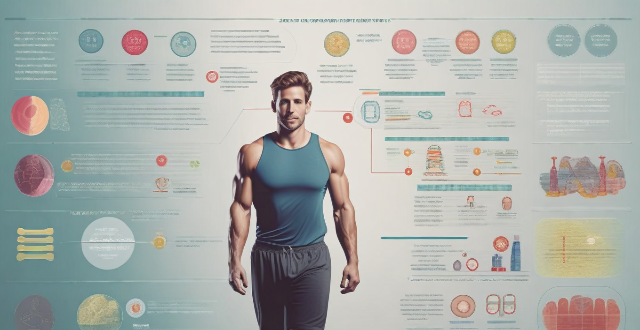
How does sports contribute to personal growth ?
Sports significantly contribute to personal growth by enhancing physical fitness, mental agility, emotional well-being, and life skills such as resilience, leadership, and adaptability. Regular participation not only maintains a healthy weight but also fosters discipline, self-esteem, and teamwork. Overall, sports are instrumental in developing well-rounded individuals capable of facing life's challenges with confidence and competence.

Are tennis training camps effective for children and teenagers ?
Tennis training camps can be an effective way for children and teenagers to improve their skills and develop a love for the sport, depending on factors such as quality of instruction, level of commitment, and overall environment. Benefits include skill development, learning new techniques, building confidence, and socializing with other young players.
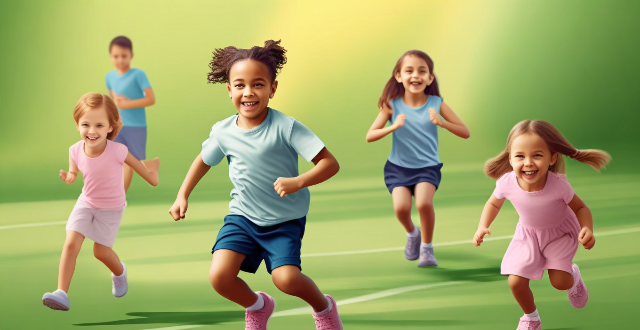
Why is it important for parents to support their children's participation in sports education ?
Participating in sports education is essential for a child's development as it teaches valuable life skills such as teamwork, perseverance, and discipline. Parental support in children's sports education is crucial as it encourages physical health, fosters emotional well-being, promotes social development, instills lifelong habits, and supports academic performance. By encouraging participation in sports, parents play a significant role in their children's overall development.